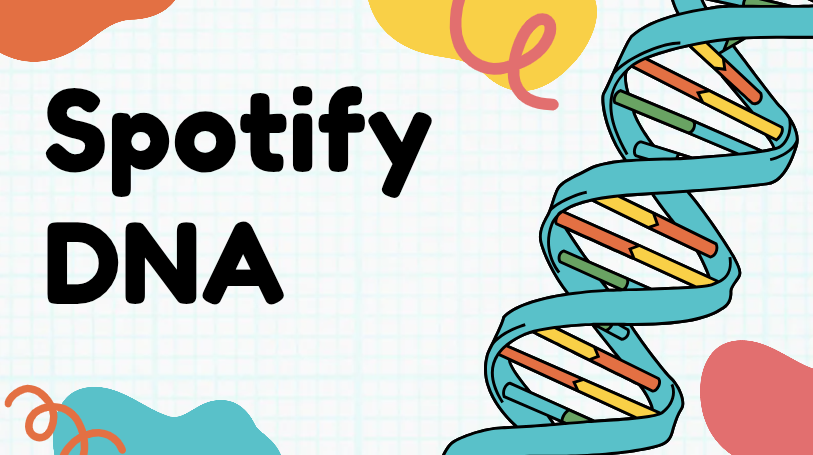Spotify DNA: Unveiling the Essence of Personalized Music Experiences
Spotify has become synonymous with music streaming, revolutionizing how people discover, listen to, and share music. Beyond its massive library and sleek interface, Spotify’s core strength lies in its ability to personalize user experiences. This personalized approach is powered by what can be termed as the “Spotify DNA” — a sophisticated combination of algorithms, data analysis, and human expertise that creates a seamless music journey tailored to every listener. In this article, we’ll explore the key elements of Spotify DNA, its role in transforming the music industry, and its impact on listeners and artists alike.
Understanding Spotify DNA Core: The DNA of Personalization
At its heart, Spotify DNA is about creating a unique, tailored experience for every user. This personalization is achieved through a blend of cutting-edge technology, massive amounts of data, and human touch. Here are the key components that form Spotify DNA:
Data Collection and Analysis
Spotify collects a wealth of data to understand its users’ preferences. Every song you play, skip, save, or add to a playlist contributes to the vast pool of data Spotify uses to understand your taste. This data includes:
- Listening habits: Time spent on specific genres, artists, or playlists.
- Behavioral patterns: Skips, repeats, or pauses during playback.
- Contextual factors: Time of day, location, or even the device used.
The insights drawn from this data form the foundation of Spotify’s ability to predict what you’d like to hear next.
Advanced Algorithms
Spotify’s recommendation engine uses machine learning and artificial intelligence to process and analyze user data. The most notable algorithms include:
- Collaborative Filtering: Analyzes the behavior of users with similar listening patterns to recommend music you haven’t discovered yet.
- Content-Based Filtering: Examines the audio features of songs (tempo, key, mood, etc.) to find tracks with similar characteristics.
- Natural Language Processing (NLP): Scans music reviews, blogs, and social media to understand how songs and artists are discussed, enhancing contextual recommendations.
These algorithms work in tandem to create personalized playlists, radio stations, and daily song suggestions that keep users engaged.
Playlists as a Pillar of Discovery
From curated lists like “Discover Weekly” and “Release Radar” to user-generated playlists, Spotify has mastered the art of music curation. Each playlist reflects a unique blend of user preferences and Spotify’s data-driven insights.
- Discover Weekly: A weekly playlist tailored to individual tastes, based on listening history and shared patterns with other users.
- Release Radar: Features new music from artists you follow or might enjoy, keeping you up to date with the latest releases.
- Daily Mixes: Combines your favorite songs with new suggestions, creating a blend of familiarity and novelty.
These playlists not only cater to individual preferences but also introduce users to new genres, artists, and songs.
Emotional and Social Connection
Spotify understands that music is deeply personal and emotional. Its ability to tap into listeners’ moods and preferences creates a sense of connection and belonging. For example:
- Mood-based Playlists: Spotify offers playlists for specific moods and activities, such as “Chill Vibes,” “Workout Mix,” or “Focus Flow.”
- Shared Experiences: Collaborative playlists and social sharing features allow users to connect with friends and discover music together.
These features enhance user engagement, making Spotify more than just a music app—it becomes a social and emotional experience.
Read more: How Many Jobs Are Available in Public Utilities
The Role of Spotify DNA Human Curation
While algorithms play a critical role, human expertise is an essential part of Spotify DNA. The platform employs music editors and curators to create genre-specific playlists, ensuring diversity and authenticity. Human curation adds an emotional layer that algorithms alone cannot replicate, bridging the gap between data-driven insights and artistic expression.
How Spotify DNA Transformed the Music Industry
Spotify’s unique approach has had a profound impact on the music industry. Here are some notable effects:
Empowering Artists
Spotify provides a platform for emerging artists to reach global audiences. Features like “Spotify for Artists” give musicians access to data about their listeners, helping them understand their fanbase and refine their strategies. Artists can:
- Analyze audience demographics and geographical data.
- Track playlist inclusions and streaming trends.
- Use tools like Canvas and Marquee to enhance their music’s visual appeal.
Revolutionizing Music Discovery
Gone are the days of relying solely on radio or record stores for music discovery. Spotify has democratized the process, allowing listeners to explore genres and artists they might never have encountered otherwise. This has created opportunities for niche artists and diverse music styles to thrive.
Shaping Listener Habits
Spotify’s personalized approach has transformed how people consume music. Playlists tailored to specific moments or moods have made music an integral part of daily life. From morning routines to late-night relaxation, Spotify has redefined how and when people engage with music.
Changing the Album Format
With the rise of streaming, the traditional album format has evolved. Artists now focus on releasing singles or EPs more frequently to stay relevant in Spotify’s recommendation ecosystem. This shift has influenced how music is produced and consumed.
The Ethical Side of Spotify DNA
While Spotify’s personalization has many benefits, it also raises ethical concerns:
- Data Privacy: Collecting vast amounts of user data has led to concerns about privacy and security. Users must trust that their data is handled responsibly.
- Algorithmic Bias: Relying heavily on algorithms can lead to biases, potentially overshadowing smaller or independent artists.
- Monetization Challenges: Despite Spotify’s efforts, many artists argue that streaming revenue is insufficient compared to traditional sales models.
Spotify continues to address these challenges, balancing innovation with ethical considerations.
The Future of Spotify DNA
As technology evolves, Spotify’s DNA is set to become even more sophisticated. Potential advancements include:
- Enhanced AI Integration: Improved algorithms could offer even more accurate and diverse recommendations.
- Immersive Experiences: Integration with virtual reality (VR) and augmented reality (AR) could create new ways to experience music.
- Voice and IoT Integration: Spotify’s presence in smart homes and devices will likely expand, offering seamless access to music anywhere.
Spotify’s ongoing innovation ensures that its DNA will remain a driving force in the music industry, shaping how people interact with music for years to come.
Conclusion
Spotify DNA represents the perfect blend of technology, data, and human touch, creating personalized music experiences that resonate with millions worldwide. By understanding user preferences, curating playlists, and empowering artists, Spotify has redefined music consumption. However, with great power comes responsibility, and addressing ethical concerns will be crucial for the platform’s continued success.

